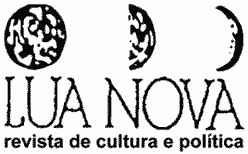Abstract
This paper analyzes empirically how a “public culture” was formed and became capable of giving form and material to collective mobilizations in the São Paulo outskirts. For such, this article takes a step backwards from what is traditionally understood as an analysis of social movements and collective actions and focuses on the subjects’ formational experiences. The research presented here is based on an ethnography performed in two districts on the São Paulo outskirts, as well as on a historical analysis concerning the political struggle of three generations of outskirt residents. Thus, in addition to exploring historical changes in terms of repertoires of action, this paper analyzes the connections between the subjects’ way of life, spaces for deliberation and political formation - here understood as “subaltern public spheres” - and collective actions in the outskirts of São Paulo for each generation studied. The priority spaces of formation for the first generation are argued to be related with the Catholic Church, especially in the Base Ecclesiastical Communities. For those belonging to the second generation, the most relevant spaces were the institutions themselves formed from the mobilization of previous years, with emphasis on NGOs and official channels for popular participation. Lastly, for the third generation, cultural collectivities and especially poetry soirees were prominent.
Keywords:
Collective Mobilization; Outskirt; Social Movements; Culture; São Paulo
